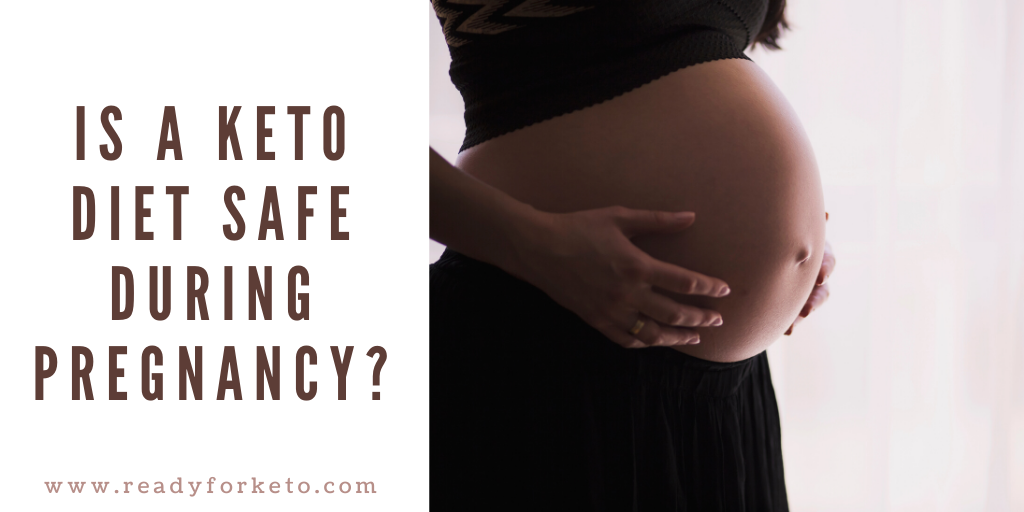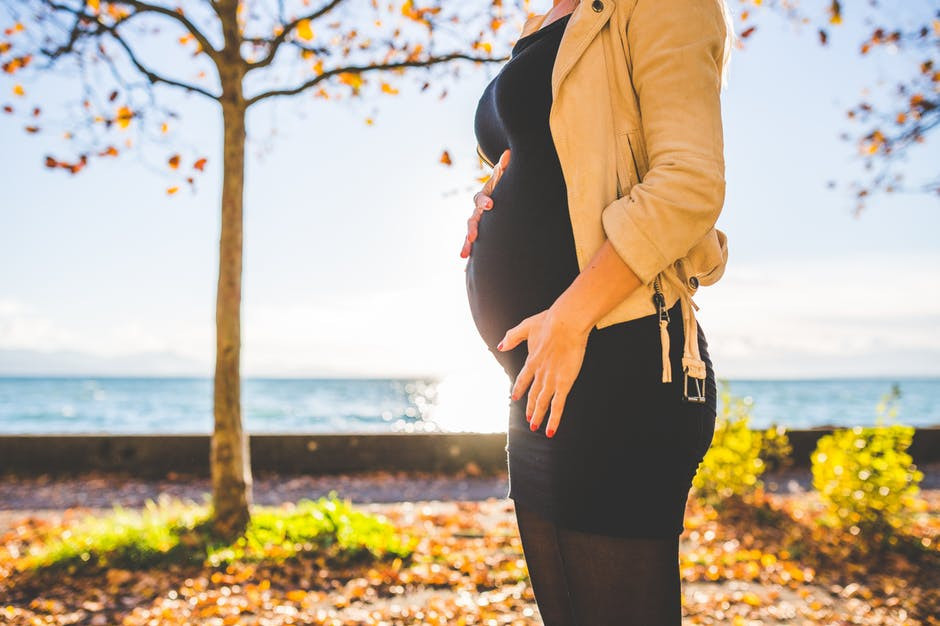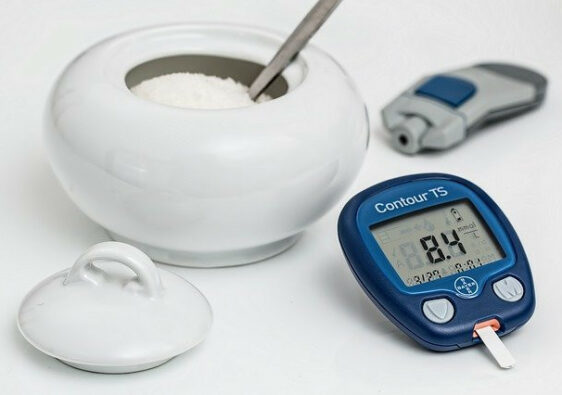In today’s article you will learn if you can follow a keto diet during pregnancy.

Is the keto diet advisable during pregnancy?
It is absolutely safe for women to maintain a ketogenic diet during pregnancy. Women in ancient times were certainly ketogenic during pregnancy!
When a woman is pregnant, the body goes through many changes. Let’s look at how ketosis fits into the life of a woman who is trying to get pregnant.
Getting Pregnant in Ketosis
Ketosis itself is not an abnormal condition for the body, it is actually reached overnight in small amounts and in longer phases of carbohydrate restriction, such as a ketogenic diet. This adaptation is important in humans in order to supply the energy-hungry brain with energy without constantly consuming carbohydrates. Nothing is inherently harmful to you or your fetus if ketones are present in your blood. So if ketones aren’t the problem and carbohydrates aren’t an essential nutrient, there is really no need to worry.
Ketosis can actually be helpful in getting pregnant. For example, it has been recommended for women with PCOS who have had difficulty getting pregnant (a common symptom of PCOS). In a pilot study on PCOS, two of the women in the study became pregnant even though they had previously experienced infertility.

Just as a well-planned ketogenic diet is safe for the average person, it is also safe for women who are trying to get pregnant, especially if they ate carbohydrate-based foods before switching to the ketogenic diet and now want to improve their health.
When is the best time to start keto?
We recommend that women start the diet two to three months before the beginning of pregnancy, so that the mother has reached ketosis before entering pregnancy. The mother should then enjoy low-carbohydrate and high-fat food every two hours during pregnancy – starting when she wakes up in the morning – without fasting. She should eat meals and snacks containing the following:
- Avocado
- Broccoli
- Butter
- Canned and fresh fish
- Celery
- Cheese
- Cream cheese
- Cucumber
- Eggs in all shapes
- Meat
- Nuts
- Unsweetened nut butter
The ketogenic diet reduces the frequency of miscarriages, pre-eclampsia, gestational diabetes and morning sickness.
Nausea is a reactive hypoglycemic reaction to the dramatically increased insulin resistance caused by pregnancy hormones.
Keto and Pregnancy
Fats are a structural component of every human cell and the preferred fuel source of the mitochondria – the energy burning units of every cell.
In the early stages of pregnancy there is an increase in body fat accumulation, which is associated with hyperphagia and increased lipogenesis.
In the later stages of pregnancy there is an accelerated breakdown of fat deposits, which plays an important role in the development of the fetus. The fetus uses transported placental fatty acids and two other products: glycerol and ketone bodies.
It appears that ketosis is particularly common in pregnant women, especially in the late stages of pregnancy. The fetus uses ketones before and immediately after birth to produce essential fats in the brain during growth. In fact, researchers believe that fetuses can even produce their own ketones. This could be the reason why ketosis is more common in pregnant women in the third trimester.
In the late stages of pregnancy, a woman’s metabolism also switches to a catabolic state (breakdown of molecules). This means that ketosis occurs more frequently. Note the frequent occurrence of nausea in many pregnant women. This alone naturally reduces the frequency and amount of food intake, which makes it easier for you to get ketosis.
Ketosis is therefore a natural condition in pregnant women and the fetus. For this reason, the ketogenic diet is consistent with pregnancy.
Precautions
Although ketosis is natural and safe when it is obtained correctly, major changes occur in a woman’s body and additional precautions must be taken during this life cycle. Here are some things to consider for pregnant women, with or without a ketogenic diet:
- Under no circumstances try to lose weight. We know that the ketogenic diet is effective for weight loss, but for most pregnant women, pregnancy is not the time to start. The best thing is to have started the ketogenic diet 2-3 months before the pregnancy.
- Eat whole foods or complete the ketogenic diet with food supplements. Nutrition is especially important when you are pregnant! However, there are some foods containing carbohydrates that need to be replaced in the ketogenic diet: Some vegetables and fruits and sometimes dairy products.
- Do not intermittently fast. While intermittent fasting has various benefits for the average person, it is not appropriate during pregnancy when it is most important to listen to your own hunger stimulus and ensure that mother and baby receive enough nutrients for growth. You should eat a small meal or snack every 2 hours, as described above.
Keto Diet While Breastfeeding
Breast milk is naturally very high in fat compared to baby food, which is rich in carbohydrates and sugar and which makes babies “addicted” early in life. When a newborn baby is breastfed, it actually spends a lot of time in ketosis, and is therefore ketogenically adapted. Ketogen-adapted babies can efficiently convert ketone bodies into acetyl-coA and myelin. Ketosis helps babies develop and build their brains. So it’s a good idea to continue consuming those “fat bombs” you ate during pregnancy.
Coconut oil helps the baby because coconut oil has antibacterial, antiviral and anti fungal properties that keep mother and baby healthy. The extra coconut oil helps with breastfeeding, but more importantly, coconut oil increases the lauric acid in breast milk. Lauric acid is a rare medium chain fatty acid that supports a healthy metabolism.
Conclusion
Eat for your health and that of the fetus. A good foundation is best for both during pregnancy and when breastfeeding.
During pregnancy, additional nutritional considerations must be taken into account. However, don’t let the fact that a healthy ketogenic diet could be harmful convince you, quite the contrary – especially compared to the standard diet most people eat.
Have you of you tried the keto diet while pregnant? What was your experiences like?
Thanks!
Anna
www.readyforketo.com






I didn’t realize it was safe to be on Keto while pregnant. I am done having children but had three girls and I always was super watchful about what I ate during pregnancy. I have anemia and try to control it with food. I have been on Keto and it makes me incredibly tired so I can’t imagine being on it during pregnancy. What would you say about fatigue while being on keto during pregnancy or in general for that matter?
Thanks, Tara!
You can experience fatigue the initial phases of the keto diet going into ketosis, which is apart of the keto-flu. You can read more about that here!
I always assume that during pregnancy you should not restrict yourself with any kind of diets. (Except raw food and high mercury food of course) It is a relief that Keto diet is safe for pregnant women. I read a couple articles as well that ketosis can help with PCOS symptom. Thank you for the list of food that I can eat. I am not pregnant yet, we have been trying. I am going to incorporate a keto diet and we will see how it goes if I can conceive quicker or not.
Thanks for sharing such an informative post.
Cheers!
Thanks for reading and good luck!